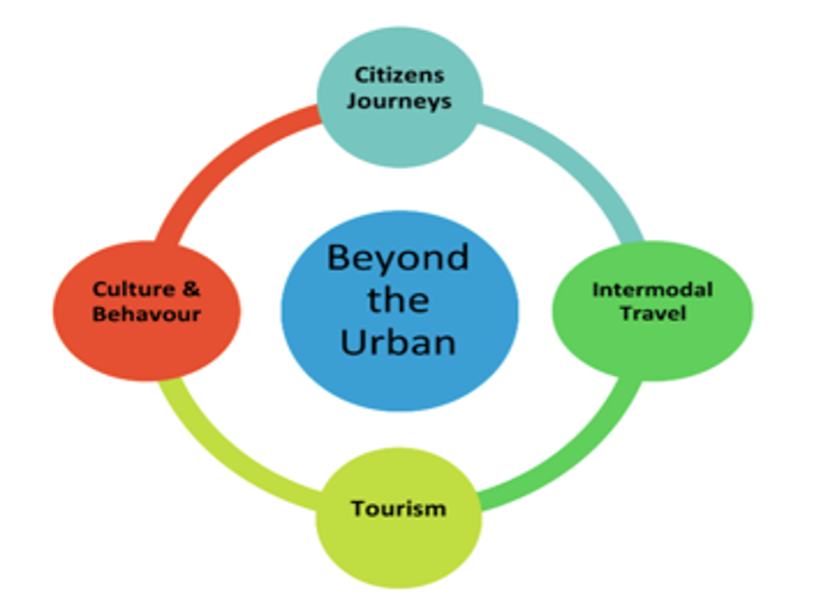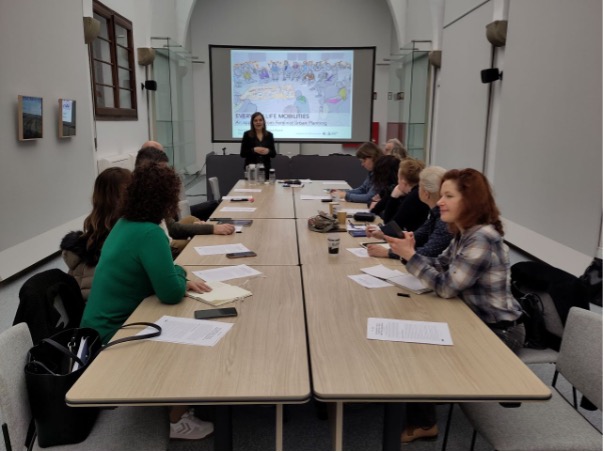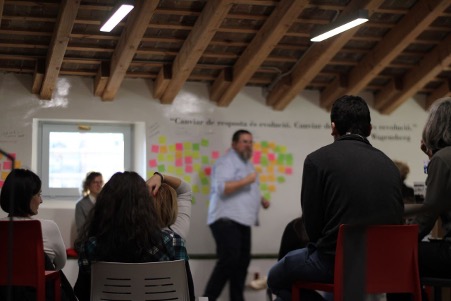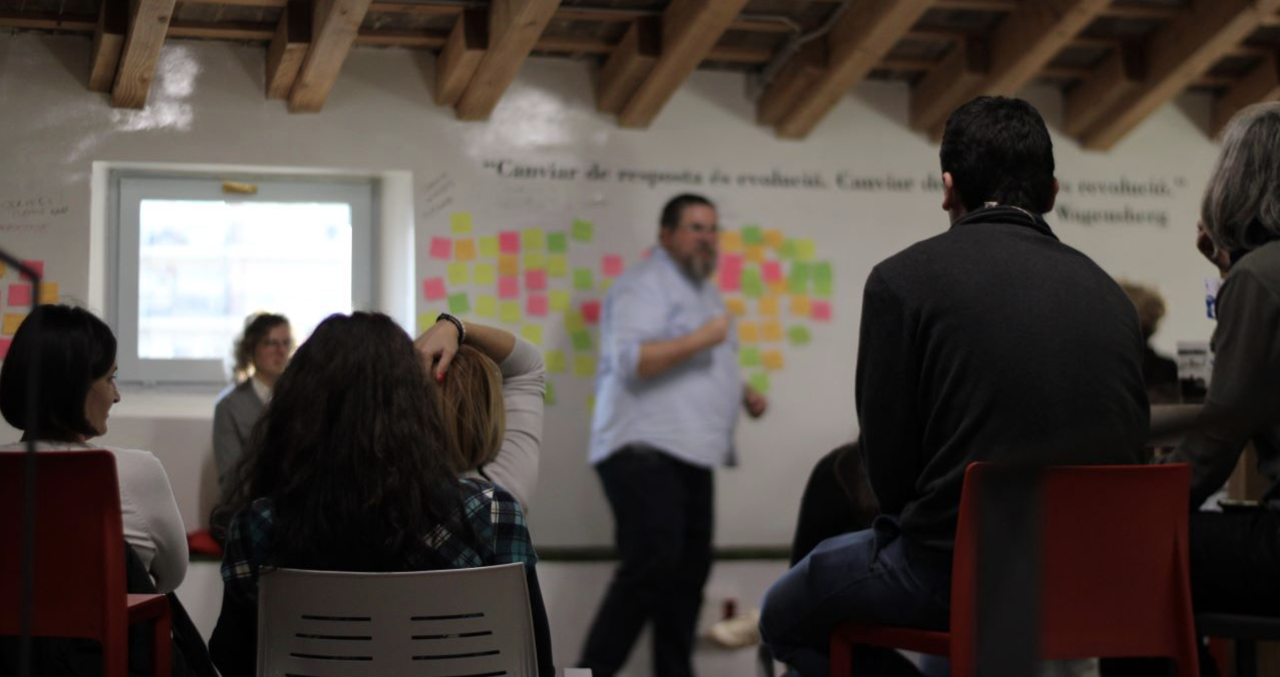We may live in a highly connected world, but the rural-urban dynamics in European cities indicate a growing disconnection. This has given rise to social exclusion, economic disparities and environmental challenges, affecting the well-being of residents in urban and rural areas.
URBACT’s Beyond the Urban Action Planning Network has embarked on a three-year journey to tackle key challenges to connectivity between rural and urban areas. This article shares some insights from a series of intensive visits across the partner regions. These findings reveal common challenges faced by communities throughout Europe, along with recommendations and recent updates from Network activities.
Beyond the Urban: Bridging the urban-rural divide
To begin, Beyond the Urban comprises 10 partner cities: Osona (ES) as the Lead Partner and a consortium of partners from Bram (FR), Bucharest (RO), Hradec Králové (CZ), Kočani (MK), Machico (PT), Szalbolcs 05 (HU), Santa Maria da Feira (PT), Tartu (EE) and Treviso (IT).
The Network stands for a bold and innovative approach, challenging conventional norms to create a smarter, greener and more connected Europe. Each partner region has something to share and teach the others about diverse transportation options beyond the car.
The Network benefited from an initial extensive analysis of sustainable rural-urban connectivity based on a series of intensive city visits across the Network partners. Some of my findings are included below, along with a few recommendations. These are divided across four themes for transformation: (1) Citizen journey, (2) Intermodal transport, (3) Transport for tourism, (4) Culture and behaviour.

Four themes for transformation. Source- Beyond the Urban
Setting a baseline
1. Citizen journey
Across the 10 partners, relying on public transport (primarily, the bus) is difficult, and there is a lack of a ‘carpooling’ or car-share culture. Municipalities like Santa Maria da Feira (PT) illustrate the complexity of balancing regional and municipal mobility needs. Several of the partners grapple with lower municipal self-containment, emphasising the necessity of addressing both local and regional transportation challenges and highlighting the need for nuanced solutions.
High private vehicle modal shares, as observed in Kočani (MK) for example, underscore the urgency to shift towards sustainable and alternative transport modes. This shift aims to alleviate congestion, reduce environmental impact and enhance overall urban mobility.
The low usage of public transport, exemplified by Osona (ES) with only 4.8% of trips, underscores the imperative to incentivise and improve public transportation options. This could involve investments in infrastructure, enhanced connectivity and awareness campaigns to shift public perception and encourage a transition to more sustainable modes.
2. Intermodal transport
Several municipalities struggle with transit traffic and congestion, emphasising the need for well-coordinated intermodal transport systems. The significance of being transportation hubs underscores the need for interconnected transport modes. This involves seamless transitions between various modes such as trains, buses and bicycles, enhancing the overall efficiency of the transportation network. The consortium will come together in Bucharest, Romania, to delve into potential solutions in this space, focusing on creating well-coordinated and interconnected transport systems. With a special focus on the rural areas' particularities.

Beyond the Urban consortium meeting. Source: Beyond the Urban.
3. Transport for tourism
From Machico's location on Madeira (PT), where 75% of the population is employed in tourism-related services, to parts of Szabolcs (HU)’s ambitions for tourism development from a significantly lower base, it is evident that tourism plays a pivotal role in shaping the mobility landscape. Municipalities need to balance the benefits of tourism, such as economic growth, with the challenges it poses to local transportation infrastructure and environmental sustainability. Locations, such as Treviso (IT), which is leading the way in terms of sustainable and active tourism, have an opportunity to share their experiences with the other partners.
Municipalities must consider infrastructure improvements, traffic management, and sustainable transport options to enhance the overall tourist experience while minimising negative impacts on the local community.
4. Culture and behaviour
A majority of municipalities grapple with resistance to alternative transportation modes. Overcoming this resistance requires targeted awareness campaigns and initiatives to educate the population about the benefits of sustainable transportation such as reduced congestion, improved air quality, reduction of carbon footprint and individual cost savings.

Beyond the Urban consortium meeting. Source: Beyond the Urban.
Implementing behavioural change techniques is essential in locations where cultural shifts are necessary. This could involve incentivising public transport use, promoting carpooling, and creating a positive narrative around sustainable mobility. A dedicated meeting in Tartu (EE) was organised specifically to address this topic, aiming to enhance public transportation infrastructure and change public perceptions to encourage sustainable transportation choices.
Municipalities should also invest in educational programmes, community engagement, and infrastructure improvements to create an environment where sustainable modes of transportation are not only accepted but embraced as integral components of daily life.
Internal reflections on data for mobility policies
Looking across the Network partners, we have also identified a need for new ways of measuring mobility. In March 2024, Beyond the Urban hosted a webinar on using data for mobility policies. Led by an expert, the webinar touched on this topic from all angles; including the possibility of accessing information to the need for institutions to have the capacity to analyse and subsequently make informed decisions. Among participants, there was a shared commitment to improving urban-rural mobility through testing and implementing sustainable, accessible and integrated mobility solutions.
Conclusions are fleshed out in this article, but plans will be developed around other areas besides data (i.e. inter-modality, multi-level governance, inclusion and gender equality).
Sustainable mobility actions: So far, and beyond
Although the Beyond the Urban municipalities present very different characteristics and needs, they represent a collaborative effort and the promise of transformative change, fostering a sustainable and inclusive transportation ecosystem for years to come.
Since this initial analysis, Beyond the Urban partners have been diligently working on enhancing rural-urban connections across the four themes for sustainable mobility transformation. We are already seeing results. Bucharest (RO) has signed a feasibility study for a new metropolitan train line that will be around 32 kilometres long, with 11 stops (covering six municipalities and connected to the zone's railway station). Osona (ES) has successfully involved the Autonomous Government of Catalonia in their URBACT Local Group, along with the Provincial Council and the Barcelona Transport Authority.
In terms of local engagement, Machico (PT) received 1 500 responses from students in two municipal schools, which will help to improve relationships with the Regional Directory of Transport and Land Mobility, and other stakeholders. Other initiatives will be launched; to name a few examples, Treviso (IT) is testing a new bike-sharing station system, and Bram (FR) is evaluating the initial results of its National Cycling Policy.
Stay tuned for more results expected in 2025, along with significant learnings that can be applied elsewhere in Europe.
Find out more about Beyond the Urban
- Watch this video about the Action Planning Network.
- Explore the Beyond the Urban Network page.
- Watch the expert webinar published in June 2024.
- Read the Baseline study by Lead Expert Dr Clyde Hutchinson.
- Read their latest article about behavioural nudging in the sector.
Get expert insights from other URBACT Action Planning Networks here.
This article was updated in September 2024. The original version was submitted by Dr Clyde Hutchinson, Lead Expert of Beyond the Urban on 05/12/2023.


